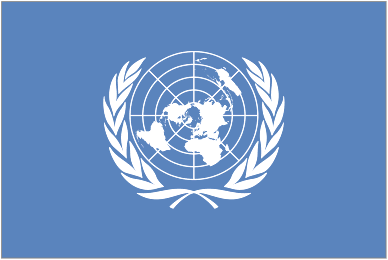
The United Nations relief chief today urged Syrian authorities to allow unrestricted access to humanitarian organizations to deliver aid to people affected by the ongoing violence, saying she was “horrified” by the destruction she had seen in some of the areas she visited during her two-day visit to the country.
Valerie Amos, Under-Secretary-General for Humanitarian Affairs, met with Syrian Foreign Minister, Walid al-Moallem, and other Government ministers, who agreed to a joint preliminary assessment mission to areas where people urgently need assistance.
“While this is a necessary first step, it remains essential that a robust and regular arrangement be put in place, which allows humanitarian organizations unhindered access to evacuate the wounded and deliver desperately needed supplies,” said Ms. Amos in a statement.
“A proposal has been submitted to the Government of Syria and I ask them to consider this matter with the utmost urgency.”
Secretary-General Ban Ki-moon told reporters today that in the wake of Ms. Amos’ visit, he had asked the Joint Special Envoy of the UN and the League of Arab States for Syria, Kofi Annan, to urge President Bashar al-Assad to facilitate humanitarian assistance. Mr. Annan will tomorrow meet with Mr. Assad in Damascus. He will also meet other government officials and civil society leaders.
“I have very strongly urged Kofi Annan to ensure that there must be an immediate ceasefire,” said Mr. Ban. “First by – if that can be agreed immediately at the same time, that would be fine – government forces then the opposition should also stop their fighting. Then there should be [an] inclusive political solution. That I think he will do.”
Ms. Amos, who is also the UN Emergency Relief Coordinator, visited the city of Homs and part of the suburb of Baba Amr with the Syrian Arab Red Crescent.
“Almost all the buildings had been destroyed and there were hardly any people left there. I am extremely concerned as to the whereabouts of the people who have been displaced from Baba Amr,” she said.
During her visit, Ms. Amos also went to facilities for displaced Syrians in the Hatay province on the Turkish side of the border, and met the Turkish Foreign Minister Ahmet Davutoglu with whom she discussed regional contingency planning efforts.
Last week, Ms. Amos also held consultations with the Lebanese and Jordanian governments and praised their readiness to assist Syrian exiles. “I commend all three governments for keeping the borders open for people in distress and for providing relief to them in a sustained manner,” she said.
Earlier this week, the UN High Commissioner for Refugees (UNHCR) said that as many as 2,000 refugees from Syria may have crossed into Lebanon in just two days.
The World Health Organization (WHO) also expressed concern today over the civilian population in affected areas of Syria, after disturbing videos surfaced claiming patients were tortured inside hospitals, and stressed that health facilities must be treated as neutral premises.
Speaking in Geneva, a WHO spokesperson, Tarik Jasarevic, said that in addition to gaining access to the population in need, health organizations are facing a series of challenges, with the Ministry of Health, local non-governmental organizations and the Syrian Arab Red Crescent all reporting the need to strengthen their trauma management capacity, address the lack of medicine and supplies and ensure the ongoing provision of basic health services.
Mr. Jasarevic noted that WHO and the UN Population Fund (UNFPA) will conduct an assessment next week regarding the needs of health facilities in the areas of Homs, Dara’a, Der Ezzour and rural Damascus to understand the impact of the crisis more adequately and deliver health services more efficiently.
Yesterday, Joint Special Envoy of the UN and the League of Arab States for Syria, Kofi Annan, called for an immediate end to the killings and warned against the use of force.
“I hope no one is thinking very seriously of using force in the situation. I believe any further militarization will make the situation worse,” Mr. Annan said at a joint press conference in Cairo with the Secretary-General of the Arab League, Nabil El-Araby.
The uprising in Syria is part of the broader Arab Spring protest movement that began at the start of last year and has toppled several long-standing regimes in North Africa and the Middle East.